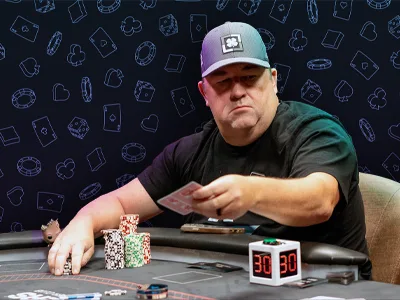Poker isn’t about winning every pot—it’s about maximizing long-term expected value In poker, especially in tournaments, the decision to muck a hand rather than push all-in can be just as critical as any big call or bluff. Understanding when folding outweighs the potential benefits of risking your entire stack often separates steady players from those
Category: How to
Transitioning From Cash Games to Tournament Heads-up Play
Successful players learn to value each chip as though it represents survival, not just money in play Making the switch from cash game poker to heads-up tournament play requires a clear understanding of how strategies change once the format and incentives shift. Many players who thrive in cash games struggle in tournament heads-up scenarios because
Using Stealth: Playing Under the Radar in Texas Hold’em Tournaments
Where every decision can determine survival, subtlety can sometimes be the sharpest weapon In Texas Hold’em tournaments, survival is just as important as aggression. While flashy plays and big bluffs often draw attention, many successful players thrive by taking the opposite approach—playing under the radar. Stealth in tournament poker means blending into the table dynamic,
When Mucking Beats Going All-In in Texas Hold’em
Going all-in recklessly may feel bold, but folding at the right time keeps you in the game to win In Texas Hold’em, players often dream about the big double-up, pushing all their chips in and scoring a massive pot. However, there are many moments where folding quietly, or mucking your hand, is actually the stronger
Analyzing the Meta: How to Adapt to Different Opponents in Short Deck Hold’em
Those who track the shifts and respond decisively often maintain the upper hand Short Deck Hold’em, with its reduced 36-card deck and altered hand rankings, creates a unique environment where reading and adapting to opponents becomes even more critical. Because flushes rank higher than full houses and certain preflop equities run closer together, the meta
Mastering Multi-table Online
Today I’m going to talk to you about how to get the most out of your online grind by multi-tabling to your maximum potential. That’s the biggest difference between online play and live play at a casino. At a casino, you can only play one table at a time. Online you can play as many
Bankroll Management: Surviving the Downswings From Cold Decks in Texas Hold’em
Bankroll management doesn’t remove the sting of a downswing, but it protects your ability to keep playing In Texas Hold’em, even the most skilled players face downswings caused by cold decks—those frustrating stretches when the cards simply won’t cooperate. While these streaks are inevitable, strong bankroll management can mean the difference between weathering the storm
Building a Winning Routine: Daily Habits of Successful Heads-up Players
Successful heads-up players give themselves the best chance to consistently outthink and outlast their opponents In heads-up poker, where every hand is a battle and small mistakes get magnified, success often comes down to preparation and discipline as much as in-game decision-making. The best players in this format don’t rely solely on talent; they build
The Value of Small Ball Poker in Early Stages of Texas Hold’em Tournaments
By controlling pot size and using position wisely, you can grow your stack without exposing yourself to unnecessary danger Small ball poker can be a powerful approach in the early stages of Texas Hold’em tournaments, especially when blinds are low and stacks are deep. The core idea is to play many pots with small investments,
Adjusting Your Strategy When Mucking in Texas Hold’em Cash Games
Each time you fold, consider whether revealing your hand fits better with your overall strategy Knowing when to muck your cards in Texas Hold’em cash games is more than just tossing your hand away — it’s part of a larger strategy that can impact your image at the table and long-term profitability. Adjusting how and
The Mental Game Of Poker
Poker is not a sport but a competition of mental fortitude, endurance, and perseverance. I’ve never considered myself an intellectual. I did okay in school, dropped out of college to pursue poker, and generally stay out of the loop when it comes to world events. Everyone is wired differently; some people pick up poker and
Making the Most of Your Bluffing Opportunities During Cold Streaks
A cold streak doesn’t mean play recklessly, but is a chance to sharpen your ability to read opponents When a cold streak hits at the poker table, it can feel like nothing is going your way—your hands don’t connect, the board never cooperates, and opponents seem to have you beat every time. But rather than












